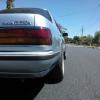Afm Vs Map
Announcements
-
Similar Content
-
Latest Posts
-
By Dose Pipe Sutututu · Posted
This would be interesting, would you feed it via a 2nd row of injectors? Or just usual WMI nozzles? -
By SLVRBAKSLPZ · Posted
All, What's the recommended torque for the 1/2 head studs for RB30 twin cam conversion with RB26 head? -
also, we need to know which solution worked....
-








Recommended Posts
Create an account or sign in to comment
You need to be a member in order to leave a comment
Create an account
Sign up for a new account in our community. It's easy!
Register a new accountSign in
Already have an account? Sign in here.
Sign In Now